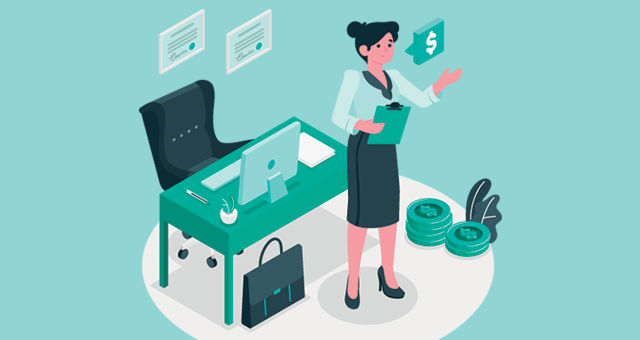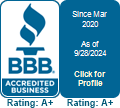
Choosing the Right Card: Debit vs. Credit
“Debit or credit?”
People and machines at the grocery store, petrol pump, and other places ask you that question practically every day. According to the 2022 Federal Reserve Payments, Americans paid with cards for 157 billion transactions, totaling more than $9.4 trillion in 2021. Both debit and credit cards offer distinct benefits and potential pitfalls, making it crucial to know when to use each one to maximize your financial health and avoid unnecessary debt.
Introduction to Debit and Credit Cards
Although they offer flexibility and ease in handling money, debit and credit cards function differently. You can only spend the money associated with your bank account with a debit card. A credit card, on the other hand, enables you to borrow cash up to a certain amount that must be paid back, frequently with interest. This blog post will discuss the pros and cons of debit and credit cards and provide tips on when to use each effectively.
Pros and Cons of Debit Cards
Benefits
All forms of payment methods, including debit cards, have advantages. The following are some benefits of using a debit card:
- Helps Control Spending: Debit cards draw directly from your bank account, making it easier to keep track of spending and avoid overspending.
- No Annual Fees: Since debit cards seldom impose annual fees, it is affordable.
- Save money on interest: Since you are not borrowing cash, there are no interest charges.
- Budget Friendly: As you can only spend the amount available in your account, debit cards assist you in staying within your budget.
- Lower Risk of Debt: You can only spend the cash you have, thus reducing the risk of accumulating debt.
- Automatic Transfers: You can set up automatic transfers to pay your bills, send money to others, contribute to retirement accounts, or save money.
Disadvantages
- Limited Fraud Protection: If your debit card is lost or stolen, funds in your account will disappear, and recovery can be slow.
- Overdraft Fees: You may have to pay a fee if you overdraw.
- Doesn’t Help Build Credit: Using a debit card won’t raise or establish your credit rating.
- Limited Spending Options: You can only spend the amount currently in your bank account.
Pros and Cons of Credit Cards
Benefits
Credit cards are loans with a monthly duration that ends on the date of payment due. The best benefit of credit cards is the ability to postpone payments and pay for only one bill per month rather than numerous smaller costs for each transaction.
Additional benefits of credit cards are:
- Enhanced Fraud Protection: Credit cards offer better protection against fraud, as you can dispute unauthorized charges without immediate loss of funds.
- Credit Building: Each month, the three credit bureaus receive a report from your credit card issuer detailing your purchases and payment history. Your credit score might rise if you pay off your bill each month and maintain a low credit utilization ratio. It is essential for loans and mortgages.
- Rewards: With certain cards, you can accrue points for your transactions. Additionally, you might be able to exchange these for gift cards, cash back, airline miles, statement credits, or other items, depending on the card you use. Rewards are stored for use at any time until their expiration (usually after five years) or until you decide to redeem them.
- Emergency Spending: Credit cards provide a safety net for unexpected expenses when you do not have enough cash.
- Benefits from credit card networks: A select few credit cards offer benefits from credit card networks. For instance, several credit cards offer travel perks like lost luggage insurance, trip interruption, and cancellation coverage, and travel help programs.
- Budgeting: Your credit card statement can be a valuable tool to keep tabs on your spending and create a budget.
Disadvantages:
- Interest and Fees: You may have to pay interest if you don’t pay off the balance every month. Other fees associated with credit cards are annual fees, late fees, and fees for specific activities like cash advances and balance transfers.
- Potential for Debt: If not managed carefully, it is easy to overspend with a credit card, leading to debt accumulation.
- Impact Your Credit Score: Your credit could suffer if you use credit cards irresponsibly. Bad credit ratings can also adversely affect jobs, housing, loans, and other application processes.
Best Situations to Use Your Debit Card
- For Everyday Purchases: Use your debit card for everyday purchases such as groceries, gas, and dining out. It helps maintain a clear view of your spending, and using cash linked to your checking account makes it hard to overspend and facilitates easier monitoring of your expenditures. You will not have to monitor several cards or account balances to stay informed because debit charges will appear promptly on your checking account statement. Thus, sticking to your spending limitations is much easier when you use a debit card.
- For Cash Withdrawals: When you need cash, using a debit card at an ATM is straightforward and usually involves lower fees than using a credit card for cash advances.
- When You Need to Keep Your Credit Utilization Low: Borrowing can lower your credit score. Thus, if your credit utilization is more than 30%, it may make sense to utilize debit cards while you work towards paying off your debt.
Best Situations to Use a Credit Card
- To Spread the Cost: You might not have enough cash to pay for a big purchase, like a new washing machine or a vacation. Using a credit card allows you to spread the payment over a time of months; if you use a card with a 0% APR offer, you may also avoid paying interest for several months.
- To Benefit from Reward Programs: Several credit cards come with cashback features that let you get paid for your purchases. Others provide incentives like air miles or shopping loyalty points. You’ll make more money the more you spend, but since many credit cards have high interest rates, you must pay off the amount each month.
- To Make Large Purchases: Many credit card companies extend guarantees solely for using the card. These warranties occasionally provide you with additional protection beyond what is provided by the manufacturer. Because of this, credit cards are a fantastic option when making purchases like gadgets and appliances.
- For Recurring Expenses: Credit card usage makes sense for recurring expenses like gym memberships. In this manner, you can settle any complications without losing money.
- When Travelling: Several credit cards offer travel coverage, such as insurance against lost or stolen luggage, delayed flights, and other unforeseen circumstances that may arise while traveling, including losing your suitcase in ridesharing. When you hire a car, certain cards provide a waiver that saves you money on insurance. Additionally, if your credit card is lost or stolen while traveling, you won’t need to worry about someone being able to access your bank account because it’s not connected to it.
- To Restore or Establish Credit: Making modest credit card purchases and paying them off can help establish or rebuild your credit score. Once your credit score has improved, you will be eligible for better offers, lower rates, and a bigger credit limit.
Advice on Sensible Credit and Debit Card Use
- Monitor Your Accounts: Regularly check your account statements to track spending and detect unauthorized transactions early.
- Monthly Payment of Credit Card Balances: Pay off your credit card debt in full each month to avoid incurring interest and keep your credit score high.
- Stick to a Budget: Whether using a debit or credit card, sticking to a budget helps prevent overspending.
- Know Your Limits: Be aware of your credit limit, and do not max out your credit card.
- Be Aware of Fees: Understand the fees associated with your cards, such as annual fees for credit cards and possible transaction fees for debit cards.
Making the Smart Choice
Both credit and debit cards have a place in a wise financial plan. Understanding the pros and cons and when to use each card can maximize their benefits while minimizing potential downsides. The key to monetary health is not just in choosing the right card but also in using it wisely. Whether managing daily expenses or planning for significant purchases, the right approach will help you stay on track and achieve your financial objectives.


